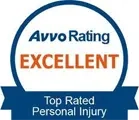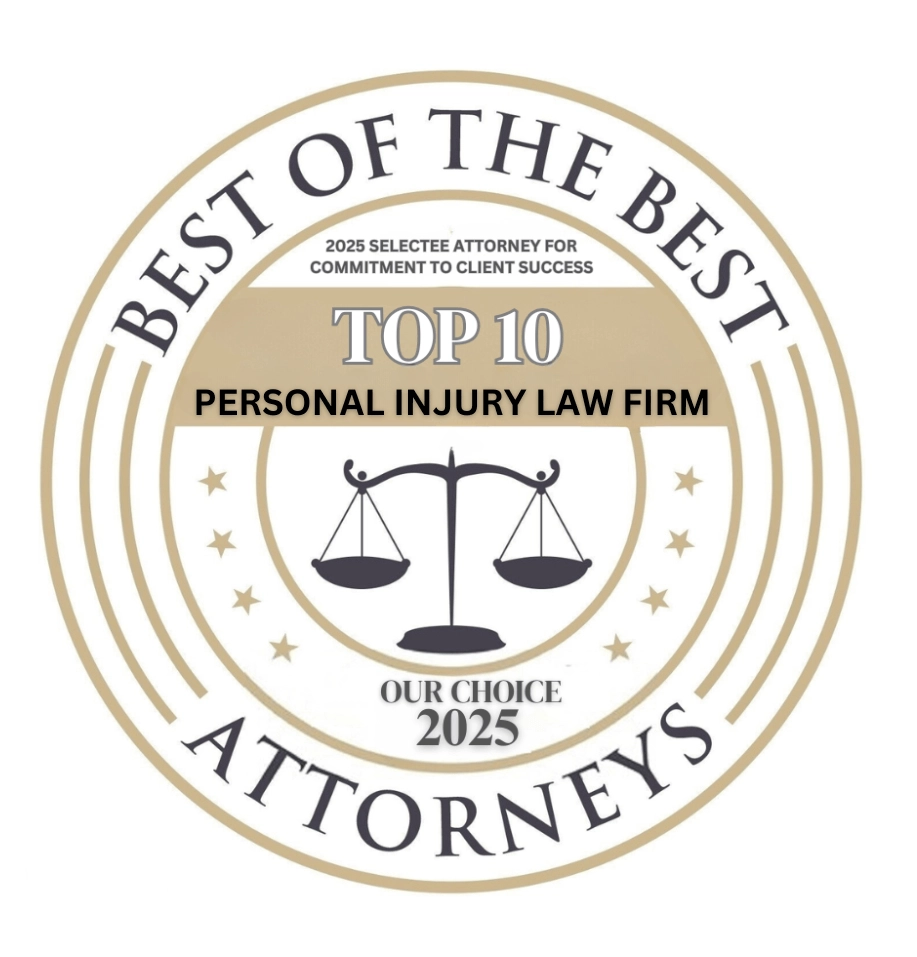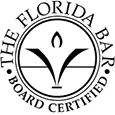Do Most Car Accident Cases Go to Court?
No, most car accident cases do not go to court. Most car accident claims end with a settlement, which does not make obtaining a fair settlement easy. Insurance companies and other liable parties often work hard to pay as little as possible. You need an effective car accident lawyer to secure the settlement you deserve.
You may need to go to trial, especially when liable parties do not negotiate in good faith. When seeking a lawyer to lead your car accident case, find a firm with a proven track record of winning at trial.
Request A Free Consultation Today!
Why Do Most Car Accident Cases Settle?
Car accident claims settle more generally for several reasons.
Settlements are the most common outcome in civil cases because:

- The high cost of trial: While every case comes with a cost, cases that require tend to be far more costly than those that never lead to court. A law firm may hire experts to testify or commission exhibits, and the firm may face other direct financial expenses related to the trial. Most costly, though, is the time a lawyer must dedicate to preparing their case, attending court dates, and managing the other trial details.
- The uncertain outcome of a car accident trial: A lawyer must trust that a jury will make a fair, logical decision based on the evidence the attorney presents. However, because the case is in a jury’s hands (or judge’s hands, in a bench trial), there is always an element of uncertainty with a civil trial.
- The motivation of the car accident lawyer to settle: Because of the cost and uncertainty of going to trial, your attorney (and you) will have the motivation to settle out of court. This only means that your lawyer will fight hard to secure a settlement, not that they’ll shy away from trial.
- The motivation of liable parties to settle: Liable parties also know that if a jury sides with the plaintiff, they can face substantial financial liability. Therefore, an insurance company or civil defense attorney may also have great reason to settle out of court.
Yet, with these compelling reasons for all sides to settle, some car accident cases still go to trial. Why?
Reasons Why a Car Accident Case May Not Settle
A car accident case typically goes to court when representatives for the plaintiff and the liable party cannot agree to a fair settlement.
The two sides may not agree on a fair compensation package because of:
- Lack of compelling evidence: If there is video footage of an accident, convincing eyewitness testimony, or other conclusive evidence of who caused a car accident, the liable party may agree to pay fair compensation to the plaintiff. With such compelling evidence stacked against the liable parties, going to trial can pose a massive financial risk.
- Bad faith by the liable parties: In some cases, insurance companies and other liable parties do not negotiate in good faith. These parties may seek to avoid financial responsibility, even if that means acting deceptively or engaging in other bad-faith tactics. Negotiations may be fruitless when one party does not intend to offer fair compensation.
- Disagreements about the plaintiff’s injuries: Injuries are the centerpiece of many car accident cases. If the plaintiff and defendant (or insurance company) disagree about the nature or severity of the plaintiff’s injuries, a financial agreement grows more difficult to obtain.
- Disagreements about the calculation of damages: Motor vehicle accidents can cause hundreds of thousands, or even millions, of dollars in damages. If the two negotiating parties are not in the same financial ballpark when negotiating a settlement, they may not settle.
Negotiations may go most smoothly when:
- Both sides recognize who is financially responsible for the car accident
- Both sides negotiate with the genuine intention of reaching a fair financial agreement
- The plaintiff’s attorney communicates their client’s injuries and damages in a clear, evidence-based manner
- Both sides have similar calculations of the cost of the plaintiff’s damages
Even with these conditions, obtaining a fair financial recovery is never easy. Having an experienced lawyer negotiating on your behalf can lead to the settlement you deserve.
What Happens When a Car Accident Lawsuit Goes to Trial?
Before a trial begins, a judge may encourage both sides to negotiate one last time. Both parties may have gone through the discovery process and know entirely about the other side’s case. Knowing the evidence and testimony the other side will use can motivate settling.
If a trial happens, your attorney will:
- Explain to a jury why you deserve compensation and why the liable parties owe you that compensation
- Present evidence of the defendant’s liability
- Present and question any witnesses whose testimony supports your case
- Address any evidence and witnesses the defense presents
- Making a closing argument summarizing your case and requesting that a jury award the compensation you deserve
If your lawyer succeeds, the jury will award you a sum that covers or exceeds your recoverable damages.
Who Decides If Your Car Accident Case Will Proceed to Trial?
You have the final say in your lawsuit. As your attorney negotiates with liable parties, they should inform you whenever a settlement offer emerges. Your attorney will advise you on whether the offer is fair and whether you should accept or reject it.
If you trust your lawyer, you may follow their advice. If settlement negotiations do not produce a fair offer, and your lawyer feels your case will succeed in court, you may give them the green light to go to trial.
Capable Law Firms Prepare Every Car Accident Case for Trial
A trial is relatively rare, but a law firm should never be caught off guard when a case leads to the courtroom. A car accident lawyer should prepare every case as if it will go to trial. This way, if a car accident case does require a trial, the firm won’t miss a beat.
Building a trial-ready case means:
Obtaining a Wealth of Accident-Related Evidence
Strong evidence makes for a strong case.
Your attorney will seek any evidence that benefits your case, which may include:
- Video footage of your accident, which may come from traffic cameras, security cameras, or other sources
- A police officer’s report detailing your accident
- Photographs of damaged vehicles
- Eyewitness testimony
- Expert testimony
- A digital or physical reconstruction of the accident
Your lawyer will also identify any evidence that can work against your case. They will prepare a defense for any such evidence.
Documenting the Client’s Damages
Your attorney will document your damages to prove the harm you suffered from the collision. Medical bills, images of your injuries, past income statements, expert testimony, and invoices for property expenses can all be important documentation in your case.
Calculating Exactly How Much Money the Client Deserves
Every car accident victim has a different injury profile and psychological response to an accident. Property expenses can also vary significantly between car accident cases. Your attorney will personally investigate your damages and determine how much compensation you deserve.
Calculating non-economic damages can be difficult. After all, what price do you place on traumatic memories or lost quality of life?
Car accident lawyers know how to calculate these damages and may use the multiplier or per-diem calculation methods. You can trust that a lawyer will have systems to ensure the accuracy of your settlement calculation.
Negotiating Relentlessly for the Client
Your car accident lawyer will negotiate a settlement with the liable insurance company, which may involve:
- Presenting evidence of who caused the car accident (and who, therefore, is financially responsible for the collision)
- Presenting documentation of your damages
- Detailing their calculation of your damages
- Answering any questions the insurance company’s negotiator poses
Your lawyer should stand behind their calculation of your damages. If you hire a law firm with a history of case results and a strong reputation, you can rest assured that they will negotiate tirelessly on your behalf.
Addressing Any Challenges the Insurance Company Poses Toward the Case
Insurance companies aim to pay out as little as possible, no matter whether a claim is small, average, or large.
The financial model of insurance calls for insurance companies to fight claims, and an auto insurer may:
- Claim that someone is at fault for a car accident (even if this isn’t true)
- Try to convince an accident victim to accept a lowball settlement offer
- Try to confuse an accident victim and have them accept fault for an accident
- Stall, which may serve several purposes
- Misrepresent the facts of an insurance policy
Your lawyer will address any challenges an insurance company puts in their way. Car accident attorneys understand and can prepare to counter insurers’ bad-faith tactics.
Willingness to Going to Trial
Your law firm must prepare to pivot from settlement negotiations to a trial. Your lawyer can continue negotiating a settlement with a liable insurance company even once the trial begins.
What Damages Will a Lawyer Seek Compensation for (Either Via Settlement or Verdict)?
Several damages are common to car accident cases, and your lawyer will seek fair compensation for both your economic and non-economic damages. Your lawyer will consider:
Pain and Suffering
Medical journals explain that car accidents can cause mental health problems that qualify as pain and suffering, including depression and post-traumatic stress disorder (PTSD).
An accident victim may also experience:
- Anxiety (which may be generalized or limited to a fear of traffic accidents)
- Sleep problems
- Interpersonal problems
- Substance abuse problems
- Lost quality of life
Car accident lawyers often maintain relationships with mental health professionals. These professionals can help diagnose pain and suffering, explain the treatment an accident victim will need, and value the cost of mental healthcare.
Medical Expenses
Your attorney will calculate the cost of all your accident-related medical expenses. From the moment of your accident until the day you complete rehab (if that day will come), your lawyer will maintain a record of your injuries and medical care.
If you have a disabling injury that won’t heal, your attorney will consult medical professionals about future care costs.
Lost Income
When an accident victim cannot work after their collision, they may lose:
- Income
- Earning power
- Benefits
- Bonuses
- Promotions
- Psychological fulfillment you derive from your job
Professional harm can contribute to financial and psychological stress, and your lawyer will gauge the full scope of your professional damages.
Property Costs
Property expenses from a car accident can include:
- Vehicle repairs.
- Replacement of a totaled vehicle.
- Replacement of a damaged cell phone.
- The cost of a rental vehicle.
- Any other expenses related to property damages.
A Wrongful Death
The most severe car accidents result in a victim’s tragic passing.
These cases cause immense harm to surviving loved ones, who may face:
- Pain and suffering, with grief often being the most prominent
- The cost of grief counseling, medications, and other treatments for pain and suffering
- Sudden financial stress because they’ve lost a primary earner
- The loss of a spouse’s companionship
- The loss of a parent’s guidance
- The loss of the decedent’s household contributions
- Funeral expenses
For many surviving loved ones, a wrongful death lawsuit is the only way of pursuing justice. Even if someone (such as a drunk driver) faces criminal charges for a fatal accident, surviving loved ones have the right to file a wrongful death lawsuit.
Don’t Wait to Hire An Experienced Car Accident Attorney

You will likely face a filing deadline for a car accident lawsuit, so your attorney will work to file your claim as soon as possible. However, a personal injury lawyer can’t do anything for you until you call them. Don’t wait to find the right law firm to lead your car accident case and set up your initial consultation. Doing so can give you immediate peace of mind.
Free Consultation
We Are Here For You 24/7
Reviews
– Elissa M.
“Really pleased with Boohoff Law! Received immediate responses when I had any questions. Treated amazingly by all staff … made this process a true breeze!”
– Caitlyn M.
– Brandy K.
Related Posts
How Can Dashcam or GoPro Footage Help My Motorcycle Accident Case?
What Happens if the Trucking Company Claims I Was in the Blind Spot?
Wrecked by a Semi in a Pile-Up? How To File a Claim if You Were Injured in a Multi-Vehicle Truck Crash
Recovery is personal.
We’re here for you.
We’re close by. And if you can’t make it to us, we’ll meet you where you need us, at home or in the hospital.
You're better off with Boohoff.











The information on this website is for general information purposes only. Nothing on this site should be taken as legal advice for any individual case or situation. This information is not intended to create, and receipt or viewing does not constitute, an attorney-client relationship.
available 24/7
(877) 999-9999
